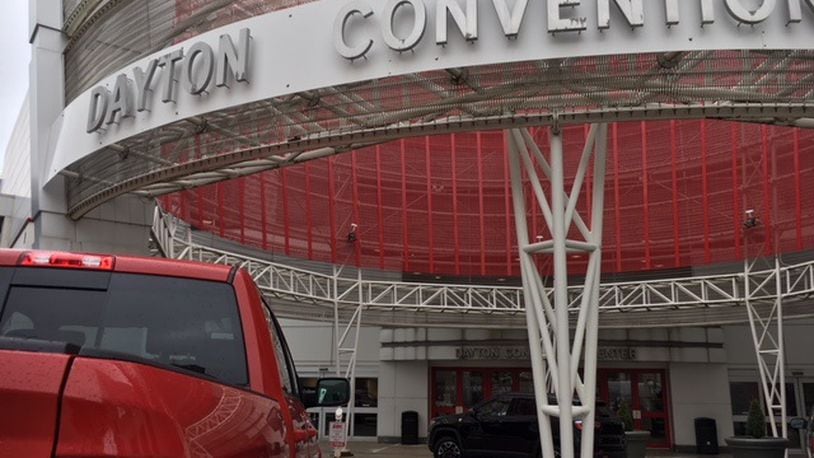The overwhelming majority of the task force recommended increasing the countywide lodging tax to 6 percent from 3 percent and using the new money to pay for about $15.2 million in upgrades to the convention center.
The task force also recommended turning operation of the convention center over to third-party management and seeking sponsorship opportunities.
RELATED: With Dayton Convention Center bleeding red, task force formed
The city of Dayton owns and operates the convention center, which is rare in Ohio, officials said.
“We can’t do this without a new, significant, reliable revenue stream – we just can’t,” said Joe Parlette, deputy city manager.
Increasing the countywide lodgings tax to 6 percent from 3 percent would generate around $3 million annually, officials said.
Task force member and Dayton Area Chamber of Commerce president and CEO Phil Parker made the argument for reinvesting in the convention center at a Dayton City Commission meeting, stating that there are ways to bring in more money for the facility.
“We think this has great potential for this broadening and being a regional asset,” Parker said.
EARLIER: City to assess future of Dayton Convention Center
Dayton and Montgomery County have a lower collective lodging tax than other Ohio cities like Columbus and Cleveland, Parlette said.
The current rate is the most allowed by Ohio law, Parlette said, but in some cases the state legislature makes exceptions. In Cleveland and Cuyahoga County, for example, the taxes are higher than the limit. Parlette said many cities have different lodging taxes than the original legislation.
All of the additional lodging tax money would be invested in the convention center, according to the task force recommendations.
Dayton Mayor Nan Whaley said Dayton is a rarity in that in pays for its convention center through its general fund.
The task force was commissioned in 2017 to look into the future of the convention center, which had been running a deficit for several years. Redevelopment, reinvestment or even demolition were all on the table as the task force examined the building’s future throughout this year.
Parlette said updating the aging Dayton Convention Center could be a boon for attracting events.
“Our ability to compete in the market for business is severely hampered by the quality of the building,” he said.
Dayton is the only one of the six largest cities in Ohio that both owns and operates its convention center, according to the task force. Other cities either co-manage their convention centers with their county or allow a third party to operate the venue.
“We think we need to look at other ownership or governance structure models, like we see in Columbus or Cincinnati,” Parker said.
The task force recommendation doesn’t represent the final plan, officials said. The commission will review the task force’s report and begin to formulate a master plan in the coming months.
